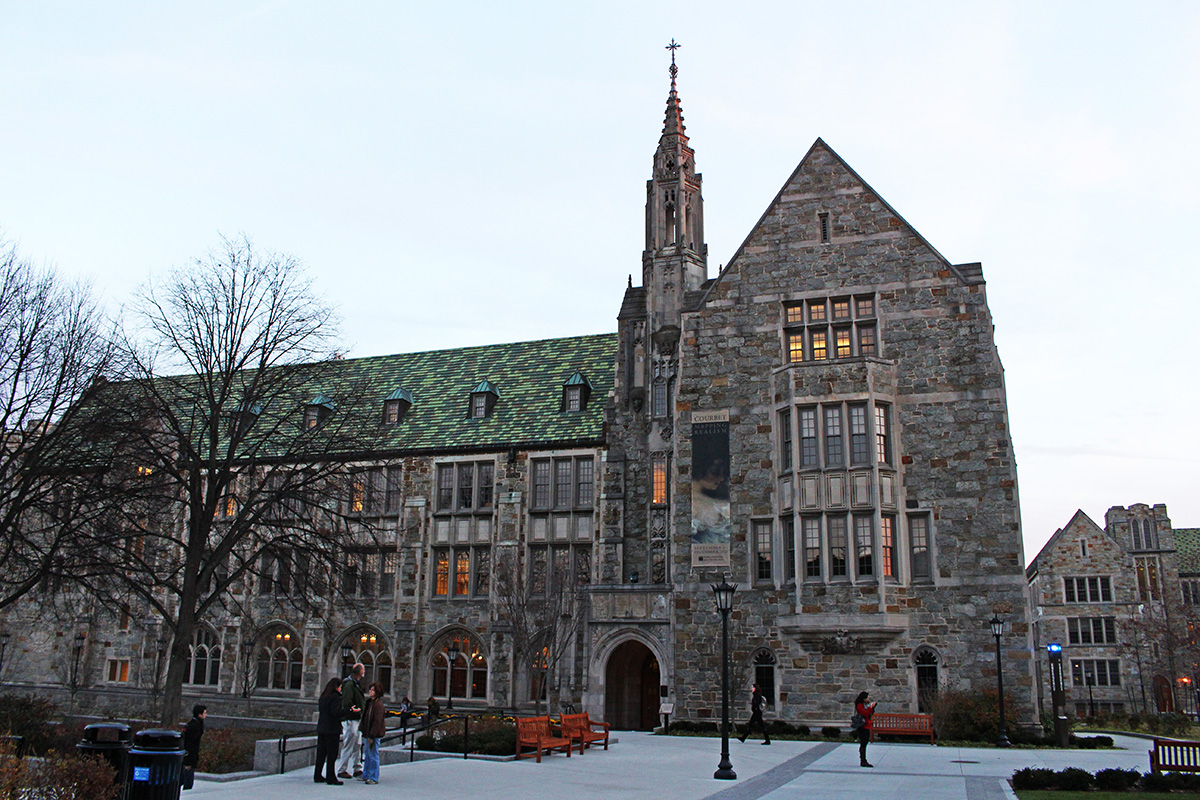BC Students Face ‘Possible’ Disciplinary Action for Ferguson Protests

Photo by Margaret Burdge
Boston College students are upset with the administration’s choice to send out letters to demonstrators who participated in a “die-in” at a private campus building last week, threatening possible disciplinary actions for the act of civil disobedience.
On December 9, dozens of BC students and faculty congregated inside of the St. Mary’s Hall residence, which school officials said is privately owned and used for “prayer and solitude” by the Jesuit community, to protest two recent grand juries’ decisions not to indict white police officers in the shooting deaths of unarmed black men.
The civil action was one of many that took place around the city in recent weeks in response to the lack of indictments in Ferguson, Missouri, and New York.
According to a letter sent to students from Rich DeCapua, associate dean for student conduct at BC, the students who staged the “die-in,” where they locked hands and lay on the ground in a show of solidarity for the victims in both cases, no permit was ever filed by protesters, which he said was a direct violation of the code of conduct that must be followed on campus.
“The unauthorized demonstration on Dec. 9 prevented workers from completing their duties and delayed the move-in of Jesuits who were looking to return to their home after two years of building renovations,” DeCapua said in his letter, which was shared publicly on Twitter by students on campus.
In a follow-up statement, Jack Dunn, a spokesman for BC, said this was the first time a protest has ever been held inside of St. Mary’s Hall, which opened in 1919.
He said the Office of the Dean of Students was reaching out to the students who held the “unauthorized, non-permitted” protest in the residence to “discuss” the matter with them.
“There had been several authorized protests in response to the court decisions in Ferguson and Staten Island that occurred on the BC campus over the past several weeks, including a die-in that same day on BC’s Newton Campus, all of which took place without incident,” said Dunn in a statement sent to Boston. “The incident in question involves a non-permitted demonstration in the private residence of the Jesuit community. This action is in violation of the Student Code of Conduct that pertains to all students.”
What type of disciplinary action students could face remains unclear, but Dunn said after meeting with the demonstrators who participated in the event, the dean’s office would “make a determination” regarding “possible outcomes.”
“At this time no decisions have been made,” Dunn said.
Regardless, students from BC have voiced their concerns about why a school whose president, Father William P. Leahy, S.J., once said, “Boston College must stand against racism and racist behavior,” in a letter published in the school paper to students in 1997, would discipline those who participated in a protest rooted in fighting back against racial discrimination.
“All of us need to be involved in helping create a truly just community. More of us should be aware of racial concerns on our campus and involved in resolving them,” Leahy said in the letter, which was written in response to racial tensions in the wake of the O.J. Simpson trial, and the U.S. Supreme Court’s decision to uphold a ban on affirmative action.
That 1997 letter circulated widely around campus, according to Emily Akin, senior editor of The Gavel, after demonstrators began receiving the warnings about possible sanctions.
“It’s in direct contradiction to the stance that the same President has assumed in 2014,” said Akin. “There is so much rage in the student body right now, and we need help to express it.”


